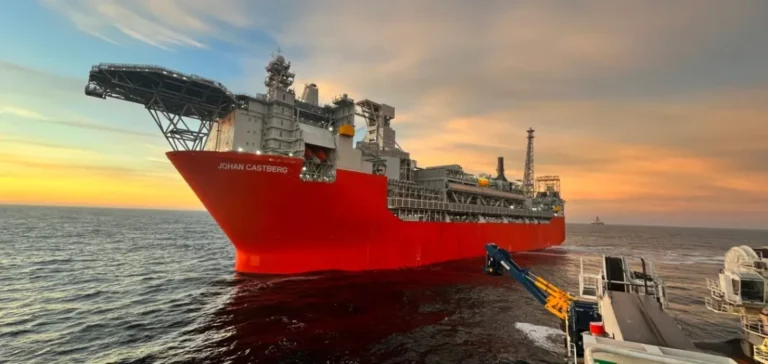The Johan Castberg oil field, operated by the Norwegian company Equinor in the Barents Sea, has reached its maximum production capacity, set at 220,000 barrels per day, just three months after coming online. This rapid increase has resulted in a 150% rise in energy volumes coming from this region to European markets.
A successful initial operational phase
The first cargo from the Johan Castberg field was loaded by the tanker Bodil Knutsen on 25 May, with an initial shipment of 700,000 barrels of crude oil destined for Spain. Currently, 17 out of the total of 30 planned wells have been put into operation and are performing according to the expectations of the technicians and engineers managing the project.
According to Kjetil Hove, Equinor’s executive vice-president for Exploration and Production Norway, “every three to four days, a new cargo worth approximately 500 million Norwegian kroner (around $46.2mn) leaves the Johan Castberg platform.”
Future developments planned at the site
Initially estimated at between 450 and 650 million barrels, the reserves at Johan Castberg could significantly increase further, with ambitions to add between 250 and 550 million barrels to the already identified volumes. To prolong the period of full-capacity production, six additional wells are planned. Additionally, Equinor is preparing another project named Isflak, with an investment decision expected by the end of the year and production targeted for 2028.
Kjetil Hove also noted that “Equinor plans to drill one to two exploration wells annually around the Johan Castberg and Goliat fields, using two separate rigs which will also drill production wells.”
Economic and regional impact
Exports from Johan Castberg will continue to primarily target the European market, in line with current distribution strategy. The field is planned to operate for at least 30 years, significantly contributing to Norway’s economy through substantial revenues and promoting employment in the northern part of the country.
Reaching this optimal production level so quickly positions the Johan Castberg field as a key player in the European energy sector and opens new prospects for oil exploration in the Barents Sea.






















